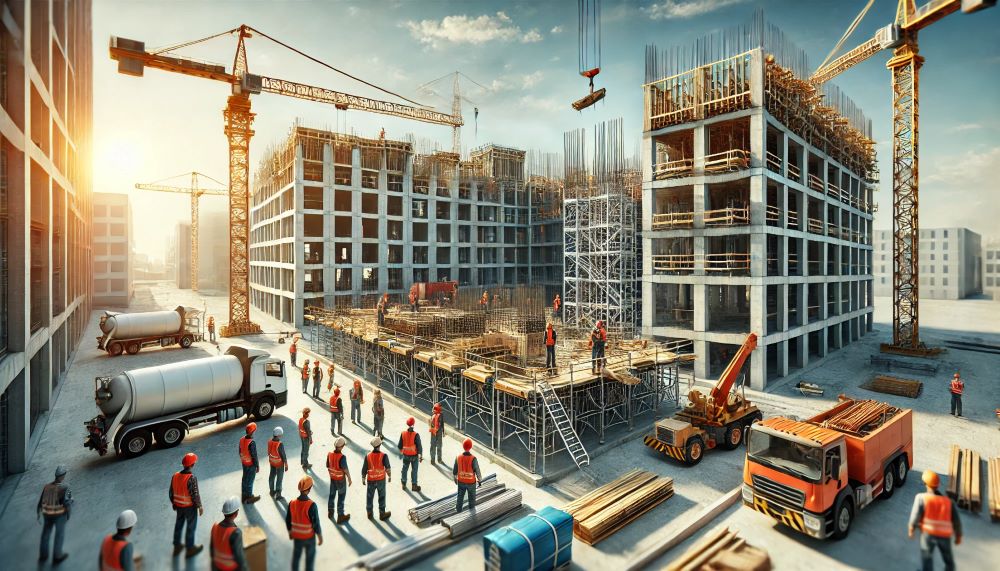A general contractor (GC) is a professional responsible for managing and overseeing construction projects. Whether it’s a small home renovation or a large commercial development, general contractors coordinate the labor, materials, and processes to ensure a project is completed on time and within budget. Their expertise encompasses a wide range of construction activities, making them indispensable to any successful build.
Roles and Responsibilities of a General Contractor
General contractors wear many hats during a project. Here are some of their key responsibilities:
1. Project Planning and Management
-
Develop comprehensive project timelines.
-
Identify necessary resources and allocate budgets effectively.
2. Hiring Subcontractors
-
Source skilled subcontractors, such as electricians, plumbers, and masons.
-
Manage contracts and ensure subcontractors adhere to project deadlines.
3. Procurement of Materials
-
Source high-quality materials at competitive prices.
-
Coordinate timely deliveries to avoid construction delays.
4. Compliance with Building Codes
-
Obtain necessary permits.
-
Ensure the project meets all legal and safety standards.
5. Quality Assurance
-
Conduct regular inspections.
-
Address any issues promptly to maintain high construction standards.
Why Hire a General Contractor?
Expertise and Efficiency
General contractors bring years of experience and industry know-how, ensuring your project runs smoothly.
Time and Cost Savings
With their extensive network, they can often secure discounts on materials and services, saving you both time and money.
Risk Management
By hiring a GC, you reduce the risk of project delays, subpar work, and safety violations.
Commercial General Contractors: Building Large-Scale Success
Commercial general contractor specialize in large-scale construction projects, such as office buildings, retail centers, and industrial facilities. Their role is critical in managing complex projects that involve multiple stakeholders, strict deadlines, and significant budgets.
Specialized Services Provided by Commercial General Contractors
-
Design-Build Integration: They often work closely with architects and engineers to streamline the design and construction process.
-
Sustainability: Many commercial GCs implement eco-friendly practices to meet green building standards.
-
Technology Integration: Modern commercial projects often involve smart systems, and GCs are adept at incorporating these into the build.
How to Choose the Right General Contractor
Finding the right general contractor can make or break your project. Here are some tips:
1. Check Credentials
-
Verify licensing and insurance.
-
Look for certifications that demonstrate industry expertise.
2. Review Past Projects
-
Ask for a portfolio of completed projects.
-
Request references and testimonials.
3. Assess Communication Skills
-
A good GC should be responsive and clear in their communication.
4. Evaluate Budget Transparency
-
Ensure they provide detailed cost estimates.
-
Watch out for vague or inconsistent pricing.
The Future of General Contracting
The construction industry is evolving rapidly with advancements in technology and growing demands for sustainability. General contractors are at the forefront of these changes, adopting tools like Building Information Modeling (BIM), drones, and AI to improve efficiency and accuracy. The focus on green building and energy-efficient designs will also continue to shape the industry’s future.
General contractors play a pivotal role in turning construction visions into reality. Whether you’re planning a residential remodel or a commercial build, partnering with a skilled GC ensures your project is managed with expertise and professionalism. From sourcing materials to coordinating subcontractors, their comprehensive services provide peace of mind and ensure a successful outcome.










